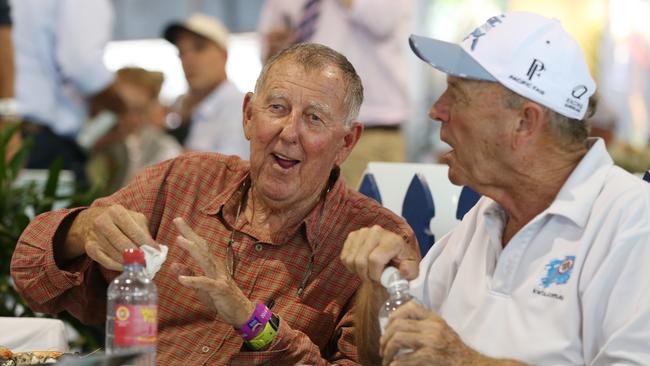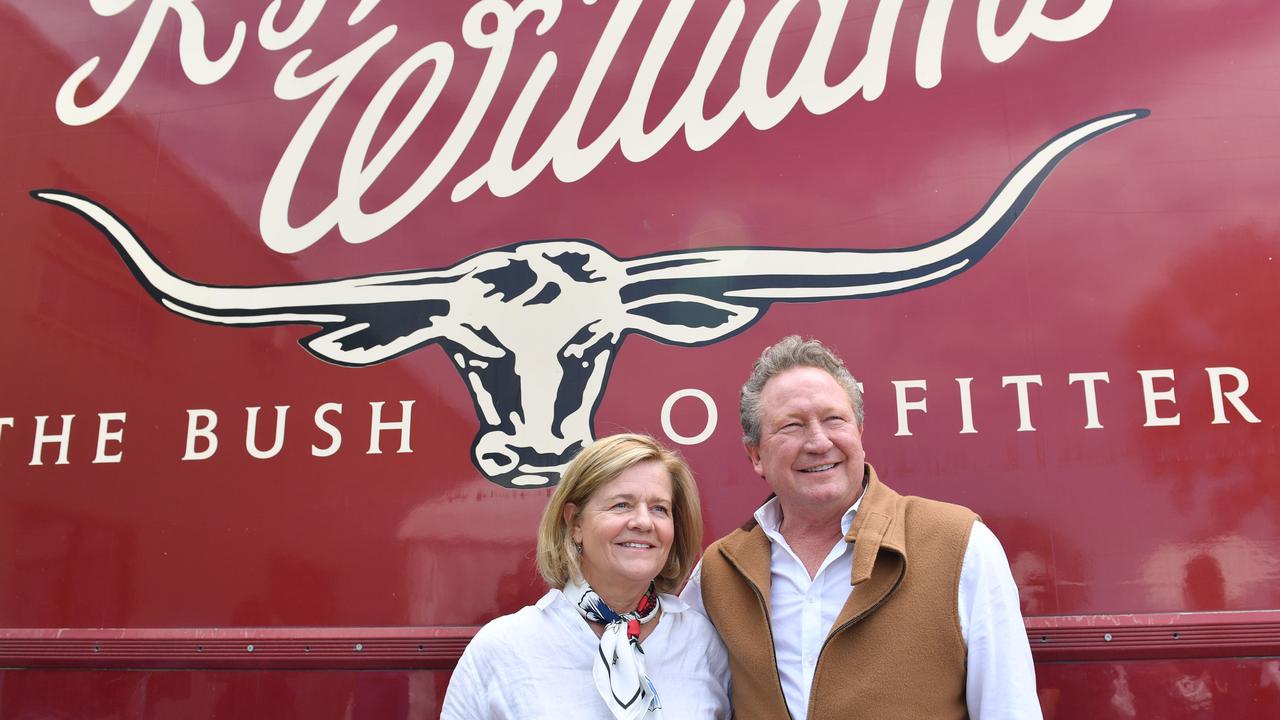Gerry Harvey lashes out after Harvey Norman hit with first strike, John Singleton weighs in
Harvey Norman investors have landed a first strike as Gerry Harvey and John Singleton lash out at negative “nobodies”.

Australian Shareholders Association’ members have again clashed with billionaire Gerry Harvey at Harvey Norman’s annual general meeting yesterday, with legendary adman and shareholder John Singleton leaping to the retailer’s defence.
The fiery meeting in the heart of the Sydney CBD saw more than half of Harvey Norman voters block the retailer’s remuneration report which called for high fixed remuneration.
All up 50.63 per cent voted against the report, earning the company a ‘first strike’ against its pay report.
The against vote was well over the 25 per cent required for a first strike, meaning a repeat next year would trigger an automatic spill of a board that has been unchanged since 2007. The company narrowly avoiding a similar fate at last year’s AGM.
But Mr Harvey was nonplussed later telling The Australian: “hopefully they will vote for us next time, I don’t see why they voted this way. It could be not enough females or independent directors on the board.”
The ASA wanted investors to dump the remuneration report because of loans to joint venture partners, franchisees and investments in a dairy farm which Mr Harvey has since sold.
Following the meeting, Mr Harvey described the ASA to The Australian as “nobodies, they don’t represent anyone one.
“They represent less than 1 per cent of shares in Harvey Norman. They came to the meeting and try to be disruptive, they are trying to make a name for themselves.”
Meanwhile, Mr Singleton, a good friend of Mr Harvey’s, said he had made a lot of money out of his Harvey Norman shares.
“I have heard about these terrible meetings, I thought I would come to it. I was driving past. There was not one relevant question about the company or its performance. It was negative, negative, negative and about climate change.”
Earlier in the day, Harvey Norman reported a slowdown in its first quarter sales, which have turned slightly negative, as it becomes the latest retailer to testify to increasingly tough trading conditions.
Analysts have already warned that a weakening housing market, flat wages growth and rising energy and fuel costs will likely pinch earnings for discretionary retailers heading into Christmas.
A string of retail chains are warning that sales have retreated.
Today, ahead of its AGM in Sydney, Harvey Norman released a trading update for its Australian and international stores.
It showed that total Australian sales growth for the new financial year to November 23 had fallen to be minus -1.3 per cent. Same store sales growth at its Australian stores was down 0.2 per cent.
Total sales to November 23 were $2.88 billion, up 2.7 per cent, or up 3 per cent on a comparable basis.
While its Australian sales have gone into negative growth. Harvey Norman’s overseas operations remain strong, with like-for-like sales in Ireland up 20.9 per cent, up 8.8 per cent in Slovenia and Croatia and up more than 47 per cent in Malaysia.
Yesterday UBS warned that retailers such as Harvey Norman would be hurt by slowing retail sales driven by constraints on household budgets.
Mr Harvey said federal political turmoil had not impacted on sales while Harvey Norman chief executive Katie Page said Brexit had impacted slightly.
Ms Page said tech products were leading Christmas sales for the group.
Hot products include a pet tech category which is priced from $99 and allows pet owners to feed their animals when they are absent from home via their smart phone.
The new HP Sprocket Photo Printer priced at up to $200 was also selling well along with a tablet known as the Microsoft Surface Go which is priced at $699 and was also selling like hot cakes in the lead up to Christmas.
Shares in Harvey Norman (HVN) were up 2.82 per cent to $3.095 at 2.38pm (AEDT) on Tuesday, still 35.1 per cent lower than a 20-month high of $4.51 back in March.
Earlier, Mr Harvey described the 22 per cent fall in Harvey Norman’s share price as a “wonderful opportunity to privatise the company.”
with AAP



